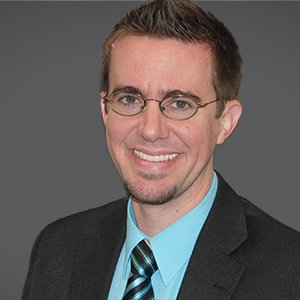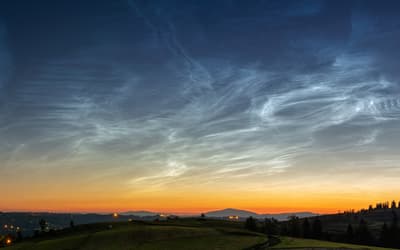Research conducted by Answers in Genesis staff scientists or sponsored by Answers in Genesis is funded solely by supporters’ donations.
Abstract
With respect to his original criticisms, Frello concedes defeat by changing the subject. In addition, his treatment of this new subject is as deficient as his treatment of the old.
Keywords: mitochondrial DNA, mtDNA, Neanderthal, Denisovan, ancient DNA, human ancestry, young-earth creation
I am pleased to see that the young-earth creation (YEC) critic, Stefan Frello, seeks to continue our exchange of ideas. Since our last interaction, I have learned that Frello holds a PhD in botany—he is eminently qualified in science. I am glad when our critics take notice of our work and then attempt to interact with it, and I am delighted when the critics are thoroughly trained in science.
In my first reply (Jeanson 2017) to Frello, I documented several errors in his initial criticism (Frello 2017) of my work: (1) he has not carefully read the papers that he criticizes; (2) he has misrepresented my position; (3) he has articulated a “test” of my position that is scientifically arbitrary, thereby making it logically deficient; (4) he has not proposed any scientific alternative to my position/he has not given the scientific community any testable, falsifiable predictions based on his views, thereby making his position unscientific.
Frello’s follow-up to my reply (see accompanying paper) reveals no attempt to engage any of the points that I made. Instead, he changes the subject to the question of other experts in the field of ancient DNA. Since Frello has refused to respond to the errors that I documented, I conclude that he has conceded the points that I raised. In other words, Frello admits that his initial criticisms were baseless.
This represents significant progress in our discussion, and it helps clarify the current state of the debate over ancient DNA.
With respect to Frello’s new criticism, his claims about experts in the field and about secular-versus-creationist journals are common accusations against YEC scientists. Therefore, it’s worthwhile to address them in some depth.
His main point is easily summarized: “I think Dr. Jeanson should prove his case, by confronting the experts within the field.” Frello apparently feels strongly enough about this point that he repeats it: “If Dr. Jeanson sincerely wants to have a response to his work from the experts within the field (as he should), he should confront them in a way to which they cannot refuse to respond.” “Confront them, Dr. Jeanson!”
Specifically, Frello thinks this confrontation should happen, not in the Answers Research Journal, but “in the journals that publish the results from the leading scientists within the field.”
Before considering the wider implications of Frello’s criticisms, let’s ask a narrower question: Does Frello believe what he’s just written? His actions prior to this suggest that he does not—or that he has suddenly changed his mind. Consider his actions with respect to his first claim—that I should confront experts in the field. In other words, Frello implies that, up to this point, I have not confronted experts in the field. Yet Frello is a PhD botanist. His initial published criticism of my work (Frello 2017) reads as if Frello thinks that he has found a flaw in what I wrote. In other words, Frello acts like he has enough scientific expertise to find fault with what I’ve published. Now, in this follow-up criticism, Frello seems to remove himself from the realm of the experts and defers the discussion to his colleagues. Does Frello not consider himself an expert anymore? If he no longer considers himself an expert, why the sudden change of mind? Why did he take it upon himself to write a criticism in the first place? What does Frello actually believe about which scientists are experts, and which ones are not? If my responses are too far outside of his scientific field, such that he no longer considers himself an expert, does that mean that he now considers me an expert in the field? If he does not consider me an expert, why is he (a fellow PhD) unable to scientifically address my claims?
Leaving his new conundrums aside, let’s expand our consideration to some of his other claims. For example, he implies that my views are flawed based on the journal in which they are published. Frello thinks that I’m afraid to publish in the secular scientific literature, choosing instead to limit my writings to the “safe haven” of the Answers Research Journal. He considers this a poor strategy for engaging my evolutionary opponents since “‘secular’ scientists mostly do not read creationist journals.” Frello asserts that publishing in the Answers Research Journal locks my results away from public view, so that my “ideas will never be confronted by experts.” In other words, Frello thinks that I’m trying to avoid criticism.
Yet, again, Frello’s own behavior undermines this claim. Dr. Frello is a “secular” scientist, and he took note (albeit, not very carefully) of the papers that I have published. The evidence suggests that secular scientists do indeed take notice of our literature. Furthermore, I wrote a lengthy reply to his criticisms, in which I welcomed his feedback. In response, Frello refused to engage my rejoinders. Which participant in this discussion is afraid of critical feedback?
Leaving aside these concerns, let’s consider the wider, oft-repeated complaint about YEC science: Why don’t YEC scientists publish in the “secular” peer-reviewed literature? Doesn’t the absence of YEC claims from secular literature diminish the importance and/or accuracy of YEC science? Isn’t the glaring paucity of YEC claims from secular journals an implicit statement about the deficiency of YEC science?
Frello’s prior actions have already hinted at the answer to these questions. In my previous reply, I documented the fact that Frello has not carefully read the YEC literature that he criticizes. In his follow-up, Frello appears to have not carefully read the secular peer-reviewed literature. If he had, he would have observed a very disturbing trend—one that eliminates the logical foundation for his challenge to me.
For example, let’s consider the similarities and differences between the YEC literature and the secular literature. Both sets of literature are peer-reviewed. For instance, when the editors at Science, Nature, and Cell receive a manuscript for potential publication, they enlist the help of fellow scientists with PhDs (or with high levels of expertise) in the appropriate fields to critically evaluate the submitted work. The same practice occurs with the YEC journals, like the Answers Research Journal. The fact of peer review does not discriminate between YEC literature and secular literature.
At this stage in our discussion, some might complain that the YEC literature is peer-reviewed by creationist PhDs and is, therefore, biased. The problem with this argument is that it cuts both ways. Let’s ask a question of the secular literature: What types of scientists review evolutionary papers? When the editors at Science, Nature, and Cell and the like receive a manuscript submission on evolution, they don’t solicit the criticisms of PhD creationists. They solicit the criticisms of fellow evolutionists. If the accusation of bias is to be leveled, then it must logically be leveled at both camps.
In the secular literature, the evolutionary bias reaches heights of which few people (Frello included) seem to be aware. For example, consider the published responses to the results of the ENCODE project (ENCODE Project Consortium 2012). One secular peer-reviewed publication (Graur et al. 2013) criticized the conclusions of ENCODE because they didn’t fit the expectations of evolution. In other words, in the secular peer-reviewed literature, evolution is not one of many hypotheses to be tested. Instead, evolution is the test of scientific hypotheses. Therefore, it is logically impossible to publish YEC scientific results in these journals.
If the Answers Research Journal is a “safe haven” for creationists, then it would seem that the secular journals are “safe havens” for evolutionists.
Frello acts as if the secular literature would gladly publish any robust, well-supported scientific discovery, regardless of which side of the creation/evolution debate the conclusions of the paper land. If Frello was more familiar with the secular literature, he would discover the logical errors in his accusations.
In summary, I am very happy to see Frello continuing to attempt to engage YEC literature. Since Frello appears to have conceded the points I raised in my first reply, this confirms the plausibility of my previously published explanation for ancient DNA. Furthermore, since Frello’s new accusations are as logically deficient as his old claims, his continued engagement of YEC literature serves to further buttress the strength of YEC science. I am pleased to see the YEC literature thrive in the face of criticism from well-qualified critics.
References
ENCODE Project Consortium. 2012. “An Integrated Encyclopedia of DNA Elements in the Human Genome.” Nature 489 (7414): 57–74.
Frello, S. 2017. “On the Creationist View on mtDNA.” Answers Research Journal 10: 181–182. https://answersingenesis.org/human-evolution/creationist-view-mtdna/.
Graur, D., Y. Zheng, N. Price, R. B. Azevedo, R. A. Zufall, and E. Elhaik. 2013. “On the Immortality of Television Sets: ‘Function’ in the Human Genome According to the Evolution-Free Gospel of ENCODE.” Genome Biology and Evolution 5 (3): 578–590.
Jeanson, N. T. 2017. “Response to ‘On the Creationist View on mtDNA.’” Answers Research Journal 10: 183–186. https://answersingenesis.org/human-evolution/response-creationist-view-mtdna/.













